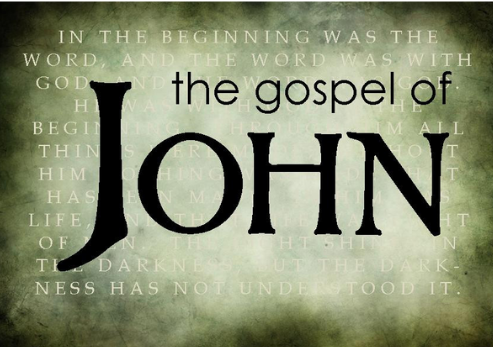| 15 "If you love Me, keep My commandments. 16 And I will pray the Father, and He will give you another Helper, that He may abide with you forever-- 17 the Spirit of truth, whom the world cannot receive, because it neither sees Him nor knows Him; but you know Him, for He dwells with you and will be in you. 18 I will not leave you orphans; I will come to you. 19 "A little while longer and the world will see Me no more, but you will see Me. Because I live, you will live also. 20 At that day you will know that I am in My Father, and you in Me, and I in you. 21 He who has My commandments and keeps them, it is he who loves Me. And he who loves Me will be loved by My Father, and I will love him and manifest Myself to him." 22 Judas (not Iscariot) said to Him, "Lord, how is it that You will manifest Yourself to us, and not to the world?" 23 Jesus answered and said to him, "If anyone loves Me, he will keep My word; and My Father will love him, and We will come to him and make Our home with him. 24 He who does not love Me does not keep My words; and the word which you hear is not Mine but the Father's who sent Me. 25 "These things I have spoken to you while being present with you. 26 But the Helper, the Holy Spirit, whom the Father will send in My name, He will teach you all things, and bring to your remembrance all things that I said to you. 27 Peace I leave with you, My peace I give to you; not as the world gives do I give to you. Let not your heart be troubled, neither let it be afraid. 28 You have heard Me say to you, 'I am going away and coming back to you.' If you loved Me, you would rejoice because I said, 'I am going to the Father,' for My Father is greater than I. 29 And now I have told you before it comes, that when it does come to pass, you may believe. 30 I will no longer talk much with you, for the ruler of this world is coming, and he has nothing in Me. 31 But that the world may know that I love the Father, and as the Father gave Me commandment, so I do. Arise, let us go from here. Questions to Consider:
| The Key verse in this portion of scripture has to be v.18. "I will not leave you orphans; I will come to you." Jesus has made it abundantly clear that He is leaving His disciples. They are apprehensive about His imminent departure from their company; and they have good reason to be apprehensive. Without Jesus, they are vulnerable, leaderless and powerless. However, Jesus was not going to leave them to tough it out on their own. He was going to "pray the Father" to send another Helper. (The Holy Spirit) Through the person of the Holy Spirit Jesus said, "I will come to you." The coming of the Holy Spirit meant that rather than having God with them, they would experience God in them. Rather than being powerless, they would be filled with the power to be witnesses. (Acts 1:8) The other important theme in these verses deals with obedience. Jesus ties the concept of walking in obedience to that of loving Christ. Jesus repeats this idea a number of times. v.15 "If you love Me, keep My commandments. v.21 "He who has My commandments and keeps them, it is he who loves Me." v.23 "If anyone loves Me, he will keep My word." v.24 "He who does not love Me does not keep My words..." What Jesus is doing by tying obedience and love together is defining what authentic Christianity should look like. "Real" Christianity does not claim one thing and live another. Jesus vilified the Pharisees for their toxic hypocrisy and He was making sure that His followers would follow Him both in word and in deed. Note: This is not a call to perfection, but it defines Christianity as something more than a philosophical concept; it is in fact a life that is transformed and being transformed by the power of God. v. 26 Jesus identifies the "Helper" as the Holy Spirit. This verse also identifies a specific function of the Holy Spirit. The Holy Spirit is our "teacher." v.27-29 Jesus is referring to His resurrection. Jesus is telling His disciples, ahead of time, what is going to happen to Him, so that after He overcomes death, they will finally and conclusively believe in Him. v. 30 This is an interesting verse, where Jesus refers to the "ruler of this world is coming, and he has nothing in Me." I believe that Jesus is referring to Satan; that Satan is bringing his "A" game against Jesus, but Satan had nothing to offer and no power to dissuade Jesus from drinking from the cup that the Father had prepared for Him. |
|
0 Comments
|
RJ DugoneLead Teaching Elder: Archives
July 2020
Categories
All
|


 RSS Feed
RSS Feed
